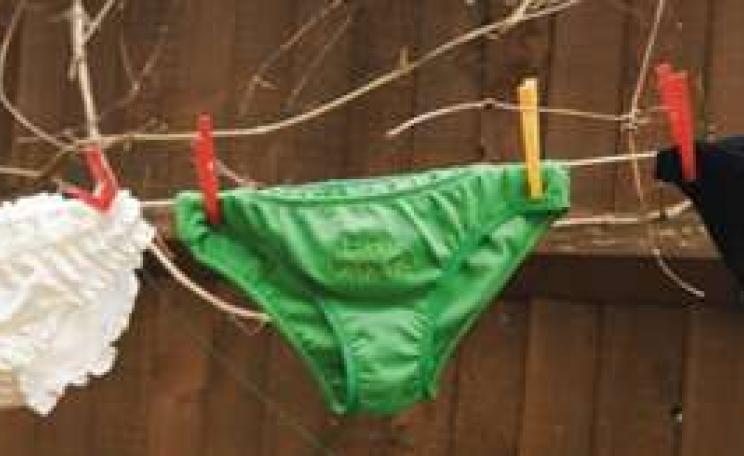For many years, those of us well-versed in fair trade and trade justice issues have been campaigning under a certain banner. We believed that years of handing out money had been ineffective, and that actually what we needed to do was to open our markets. ‘Trade, not aid’ was the buzz phrase.
But maybe it is now time to stop and assess where we have actually got to.
The global fashion industry is a huge and complicated beast. In many ways it is destructive: millions toil daily in the fields, exposing themselves to high doses of pesticide; many more work in unholy conditions in factories that demand long hours and pay a pittance.
Freedom Clothing Project’s new report, entitled ‘Rethinking fashion as if people and the planet actually matter’, argues that the global fashion industry is broken, and that we need some new thinking to create new systems that meet our clothing needs in a sustainable future.
Each year, the clothing that is sold in the UK (something like 3.6 per cent of everything produced globally) turns into around two million tonnes of waste. We do not now buy and treasure clothes; we buy and unthinkingly throw them away when they get boring.
This mountain of waste clothing becomes a huge disposal problem. Most of it is buried in landfill, but a significant proportion is sent abroad for poor people to wear. Which is why we often see people in desperate and tragic conditions on our TV screens wearing Nike t-shirts and other designer-branded clothes.
While we would argue that this is the most ethical part of the supply chain, we have seriously to ask ourselves what kind of people we are when we label others on our planet as only good for our handouts, justifying our disposable lifestyles by throwing our waste at the poor. If nothing else, our cheap waste clothing (and yes, these things are not free – even poor people have to pay something for our rubbish) destroys the market for local manufacturers and breed dependence.
Within our own country, the global fashion industry machine has caused many to live a shadowy, forgotten existence that nobody really cares about. There are people in our country who make clothing on a piece-rate (paid per completed garment), who work long hours and are regularly paid less than the minimum wage. It is not often that we hear about British clothing sweatshops because they are so hidden, but a recent BBC Panorama investigation showed examples of alleged exploitation at a British supplier of Primark. This is the tip of an horrific iceberg.
Many of us thought that the solution was to produce Fairtrade and/or organic products, but in an age of economic turbulence we surely need to ask ourselves whether we were justified in exposing the world’s most vulnerable people to the vagaries of international trade. Cotton farmers receive a tiny fraction of the price of a finished garment. When a supermarket makes more profit than the farmer receives from a Fairtrade garment, should we not ask whether it would have been more beneficial just to give the farmer the money to grow something more sustainable or to create a more vibrant local market?
If a charity were to give away just 1p from each £1 it collected there would be uproar. So how have we got to the point where it is justified in the name of ethical fashion? Read the reports and look at the Fairtrade Foundation videos about the farmers and you realise something: these farmers are only slightly better off than they were before. They are still in dire poverty.
Yes, there have been real changes to their lives, but it is not enough. They still live in conditions we would find absolutely deplorable. This is before we even start worrying about every other pair of hands that the garment has gone through on its way from the field to our backs.
Maybe it is time we woke up and smelled the coffee. Despite our best efforts, the clothing industry does not work and cannot deliver the benefits to producers and workers that we all want to see. It is even hard to see a way for the organic or fairtrade sections of the industry to make real differences given the complexity of the problems.
Surely the most ethical option is not to join in with the prevailing orthodoxy, and to become inspired to turn our mountain of waste into a mountain of opportunity. Maybe we could all do with a course in how to use a sewing machine. Maybe we should all be buying clothes from specialist markets, such as farmers’ markets, where we can meet the producer-makers who are making clothes in the UK.
In fact, maybe the best way to honour those who have given their lives and environment for the sake of a t-shirt is to refuse to see it as a disposable item and to find something else to do with it once we become bored with wearing it, rather than simply importing even more. Maybe in turn we should be ploughing some of the wealth floating around in the rich North into projects that enable people in poorer countries to have stronger local economies and better to access local markets, rather than depending on being able to send products around the world.
Joe Turner is director of the Freedom Clothing Project
This article first appeared in the Ecologist April 2009




